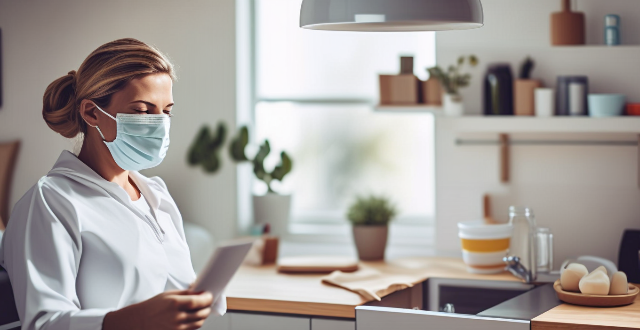Effective ways to practice social distancing include staying at home as much as possible, keeping a safe distance from others, wearing a mask or face covering in public, washing hands frequently, cleaning and disinfecting high-touch surfaces, and following respiratory etiquette. These practices can help slow the spread of infectious diseases and protect individuals and communities.

Effective Ways to Practice Social Distancing in Daily Life
Social distancing is a set of practices that are intended to slow the spread of infectious diseases by maintaining a physical distance between people. Here are some effective ways to practice social distancing in daily life:
Stay at Home as Much as Possible
- Avoid going out unnecessarily, especially to crowded places.
- Work from home if possible.
- Use delivery services for groceries and other essentials.
Keep a Safe Distance
- Maintain at least 6 feet (2 meters) between yourself and others.
- Avoid gatherings, especially indoors.
- Use virtual means for socializing, such as video calls.
Wear a Mask or Face Covering
- Wear a mask or face covering when you are out in public and unable to maintain a safe distance.
- Make sure it covers both your nose and mouth.
- Wash your hands before putting on and after taking off a mask.
Wash Your Hands Frequently
- Use soap and water for at least 20 seconds.
- Use hand sanitizer with at least 60% alcohol if soap and water are not available.
- Avoid touching your face, especially your eyes, nose, and mouth.
Clean and Disinfect High-Touch Surfaces
- Clean and disinfect frequently touched objects and surfaces daily.
- Use a regular household cleaning spray or wipe.
- Pay special attention to items used by multiple people, like remote controls and doorknobs.
Follow Respiratory Etiquette
- Cover your mouth and nose with a tissue or your elbow when coughing or sneezing.
- Throw used tissues in the trash and wash your hands immediately.
- Avoid touching your face after touching common surfaces.
By following these practices, we can all contribute to slowing the spread of infectious diseases and protect ourselves and our communities.